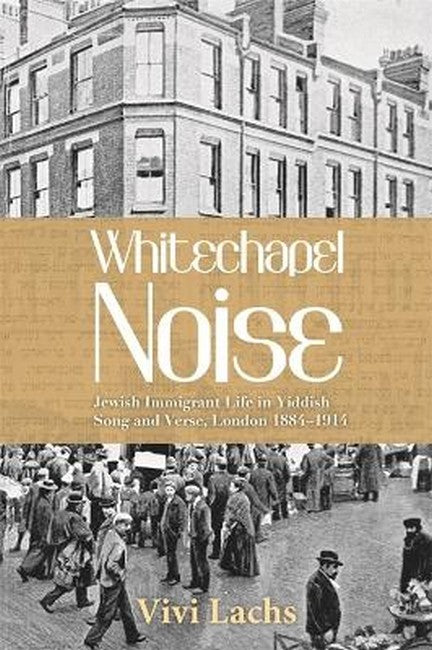Vivi Lachs is a social and cultural historian, Yiddishist, and associate research fellow at Birkbeck, University of London. She is the author of Making Multimedia in the Classroom and has written articles on education and Jewish history. She performs and composes music to London Yiddish lyrics.
Request Academic Copy
Please copy the ISBN for submitting review copy form
Description
Entertaining, humorous, fascinating, and engaging. --Joseph D. Toltz "Musica Judaica Online Reviews" Whitechapel Noise makes important contributions to our understanding of Yiddish culture in Britain, and to modern Yiddish culture more broadly. Thoroughly researched and eminently readable. --Joel Berkowitz "University of Wisconsin-Milwaukee, and co-founder of the Digital Yiddish Theatre Project" Whitechapel Noise has opened up some new ground by looking in detail at the poems and songs that dealt with Jewish life in the East End of London in the years between 1884 and 1914. . . . Lachs writes good, clear prose, and offers ideas for consideration instead of theories. Whitechapel Noise has extensive notes and a good bibliography. --Jim Burns "The Penniless Press Online" Whitechapel Noise is a fascinating book that provides a huge amount of information on an important part of London's history. --Garth Cartwright "Songlines" p.p1 {margin: 0.0px 0.0px 0.0px 0.0px; font: 9.5px Helvetica} Whitechapel Noise is a valuable contribution to Anglo-Jewish, London, and immigration history. An engaging read, it sheds light on a wealth of material which is often overlooked due to language limitations. Limitations which the book recognizes are born out of the success of Yiddish culture in facilitating the integration of East End Jewry into British life and culture. Interesting questions are posed regarding the formation of identity, making this a fascinating read for those interested in the history of immigration, both Jewish and in general. --Samuel J. Hawkins "Jewish Culture and History" Lachs makes a persuasive case that we ought to eschew the artificial high culture/low culture divide in assessing modern Jewish culture if we are to truly understand how Jews lived and understood the world around them. By looking at the cultural artifacts of the working Jewish masses, at the materials that were easily accessible and appealing to poor Jews, Lachs not only gives an insight into a story that has barely been told, but also provides a model for how to study the daily lives of ordinary Jews. --David Slucki "In Geveb" Vivi Lachs has written an accomplished and sophisticated book. Drawing on a largely neglected store of Anglo-Yiddish songs and poems, Lachs makes a compelling argument for the value of Yiddish popular culture as a historical source for understanding the lives and mental worlds of Jewish immigrants in London at the turn of the twentieth century. --David Feldman "Pears Institute for the study of Antisemitism, Birkbeck, University of London"

